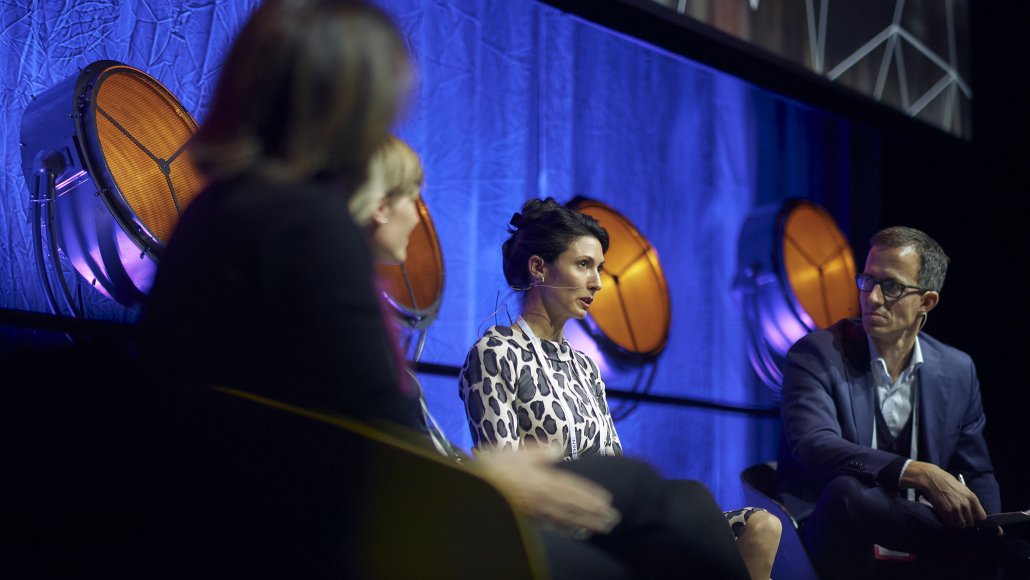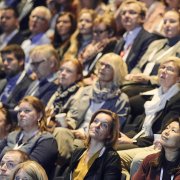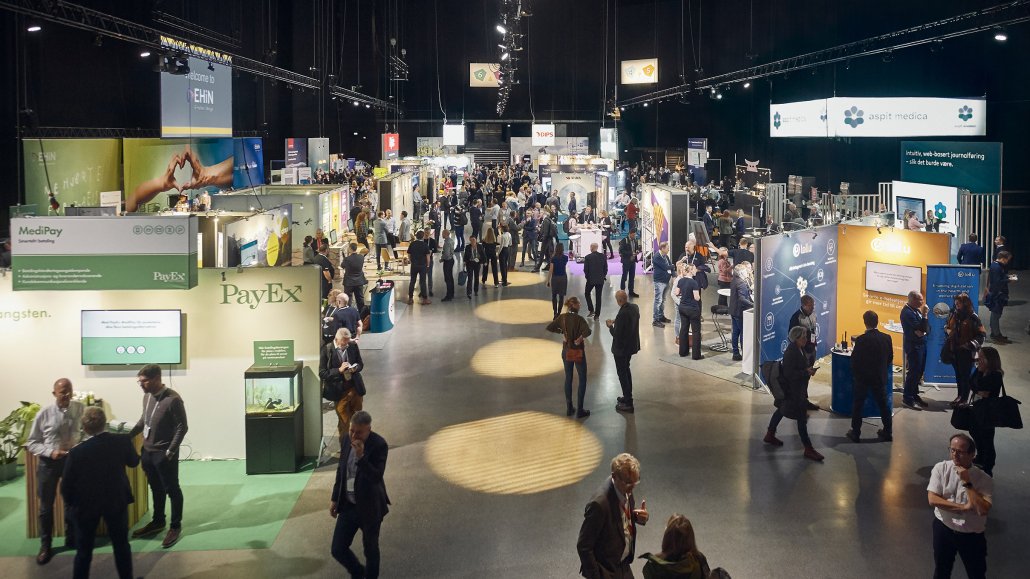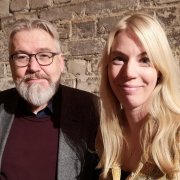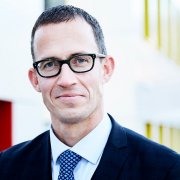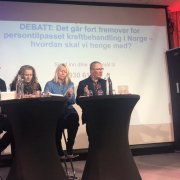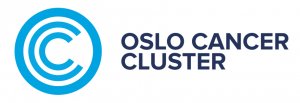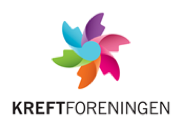This interview was first published on EHiN’s official website. Scroll down to read it in Norwegian.
EHiN is important in order to realise the opportunities that digital technologies can give patients, society and industry.
Ketil Widerberg is the General Manager of Oslo Cancer Cluster, which is a co-owner of EHiN 2019. We asked Ketil Widerberg a few questions about why digitalization and EHiN are important for cancer research.
–Can you describe in short what Oslo Cancer Cluster is and what you do?
Oslo Cancer Cluster is a non-profit member organization that gathers public and private players. The goal is to transform cancer research into treatments that change patients’ lives. We are a National Centre of Expertise (NCE).
–You are now co-owners of EHiN. What do you wish to achieve with that?
Oslo Cancer Cluster has the last ten years developed and established well-known meeting places (such as Cancer Crosslinks) by combining different disciplines. In the future, digitalisation and precision medicine (e-health) will be a central area in cancer research.
EHiN is a perfect match in this area. EHiN will be an important platform in order to realise the opportunities that digital technologies can give patients, society and industry.
–What do you think AI will mean for cancer research?
Today’s breakthroughs in treatment will often only work on 3 out of 10 patients. Artificial intelligence will change medicine in two ways. First, how we understand cancer. In the same way as the microscope gave us the ability to see things on a cellular level, data will now help us to see patterns we never would have discovered.
Second, how we treat cancer will change. We have to be ready to give the right treatment to the right patient at the right time. One way of giving individualised treatments is to recognize patterns – patterns that show how a patient will react from a treatment.
After that, you can see in larger groups of people if this pattern is repeated. Then, you select the patients that have a positive response to the treatment. This will, to begin with, not be a perfect method, but if you repeat this process, the modern machine learning systems can make it better and better.
–We know that health research takes time. How can digital solutions improve this?
Digitalisation will accelerate the development of new treatments in several areas. One area is clinical studies. Digital technology can help to adjust studies according to patient responses and enable digital control arms that shorten years off the developmental period. Digital solutions can make clinical trials more flexible and efficient, by reducing the administrative burden on companies and at the same time make it simpler for patients to enroll.
Gradually, as the volume and speed of the data increases, we have the opportunity to use new machine learning algorithms – such as deep learning. The algorithms can identify digital biomarkers that will give faster and better development of new treatments.
–Why is EHiN an important meeting place for Norway?
EHiN is relevant for Oslo Cancer Cluster because the IT revolution is about to hit the oncology field. Personalized treatments, genomics and the use of health data will soon develop into one of the most important areas of “e-health”. This is also an area that is of great interest for the IT industry, for data storing, data analysis, machine learning, pattern recognition, connecting different data sources, and so on.
At the same time, the technology will also impact the academic world and the pharmaceutical part of the health sector, and contribute to set the rules for the whole value chain in health processes in decades to come. EHiN wishes, in collaboration with Oslo Cancer Cluster, to build Norway as an important international hub in the area of e-health – by gathering and showcasing the different activities at the conference and in other settings.
–Selvlærende datasystemer gjør kreftforskning stadig bedre
EHiN er ifølge Ketil Widerberg viktig for å få realisert gevinsten digital teknologi kan tilføre pasientene, samfunnet og næringslivet. Widerberg er daglig leder for Oslo Cancer Cluster, som i høst 2018 gikk inn som medeier av EHiN.
Vi stilte Ketil Widerberg noen spørsmål om hvorfor digitalisering og EHiN er viktig for kreftforskning.
–Kan du beskrive kort hva OCC er og hva dere gjør?
OCC er en non-profit medlemsorganisasjon som samler offentlige og private aktører. Målet er å gjøre kreftforskning til produkter som endrer pasienters liv. Vi er et NCE (National Centre of Expertise).
–Dere har blitt med på EHiN. Hva ønsker OCC å oppnå med det?
Oslo Cancer Cluster har de siste 10 årene utviklet og etablert anerkjente møteplasser (som Cancer Crosslinks) ved å kombinere forskjellige fag-grener. Fremover vil digitalisering sammen med presisjonsmedisin (e-Helse) være et sentralt område innenfor kreft.
EHiN er en perfekt match for dette området. I tråd med OCC sin strategi vil EHiN være viktig for å få realisert gevinsten digital teknologi kan tilføre pasientene, samfunnet og næringslivet.
–Hva tror du AI kan bety for forskning rundt kreft?
Dagens behandlingsgjennombrudd vil ofte bare virke på 3 av 10 pasienter. Kunstig intelligens vil endre medisin på to måter. Hvordan vi forstår kreft. På samme måte som mikroskopet ga oss evnen til å se helt ned på cellenivå, vil data nå hjelpe oss til å se mønster vi aldri ellers ville oppdaget.
Hvordan vi behandler kreft vil forandre seg. Vi må derfor klare å gi den rette behandlingen til den rette pasienten til rett tid. En måte å kunne gi individbasert behandling er å gjenkjenne mønster. Mønster som viser hvordan en pasient vil reagere på en behandling.
Deretter se i større grupper mennesker om dette mønsteret gjentar seg. Da kan man plukke ut de pasientene med positivt utbytte av behandlingen. Dette vil i begynnelsen ikke være en perfekt metode, men hvis man gjentar denne prosessen, kan moderne selvlærende datasystemer gjøre den stadig bedre.
–Vi vet at helseforskning tar lang tid. Hvordan kan digitale løsninger bidra på dette?
Digitalisering vil akselerere utviklingen av ny behandling på flere områder. Ett område er kliniske studier. Digital teknologi kan gjøre at studier justeres etter respons og muliggjøre digitale kontrollarmer som korter år av utviklingstiden. Kliniske forsøk kan bli fleksible og effektive ved å redusere administrative byrder på firmaer, og samtidig gjøre det enklere for pasientene.
Etter hvert som volumet og hastigheten på data øker, har vi mulighet til å bruke nye maskinlæringsalgoritmer – som dyplæring. Det kan identifisere digitale biomarkører som vil kunne gi raskere og bedre utvikling av ny pasientbehandling.
–Hvorfor er EHiN en viktig møteplass for Norge?
EHiN er faglig relevant for OCC fordi IT-revolusjonen er i ferd med å slå inn på onkologi feltet. Persontilpasset medisin/behandling, genetikk og bruk av helsedata vil snart utvikle seg til et av de viktigste områdene innen “e-helse”. Dette er også et område som er av stor interesse for IT-bransjen (datalagring, analyse, machine learning, mønstergjenkjenning, kobling av ulike datakilder osv.).
Samtidig vil teknologien også få konsekvenser for den akademiske verden, samt den farmasøytiske delen av helsesektoren, og bidra med å legge rammene for hele verdikjeden i helseprosessene i tiårene fremover. EHiN ønsker, i samarbeid med OCC, å bygge Norge som en viktig internasjonal hub på området e-Helse ved å samle og vise frem ulike aktiviteter på konferansen og også i andre sammenhenger.

